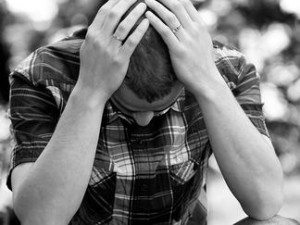Clinical depression is diagnosed as any other mental disorder is, through a simple symptom checklist administered informally by a mental health professional. While a family physician or general practitioner can screen for clinical depression, it is best diagnosed and treated by a trained, experienced mental health professional (like a psychiatrist, psychologist, or psychotherapist). Such a professional will ask you about your symptoms, your family history, and take a brief history about what’s been going on in your life.
 How to Diagnose Depression
How to Diagnose Depression
There are no laboratory or medical tests for clinical depression. It not defined as a traditional medical disease, like diabetes or cancer. Instead, it’s classified as a “mental disorder,” meaning it is composed of a constellation of symptoms.
Clinical depression is often diagnosed based on an initial assessment, psychological evaluation and physical exam.
How to Diagnose Depression: Initial assessment
The professional will ask about your symptoms — when they started, how long they have lasted, how severe they are, whether you have had them before, and if so, whether the symptoms were treated and what treatment was given. You will also be asked about your medical and family history. In rare cases or for underage children, the mental health professional may wish to interview your family members and/or other persons close to you.
How to Diagnose Depression: Psychological Evaluation
After you see your regular healthcare provider, a mental health professional is probably the best person to evaluate your symptoms. Diagnosis of clinical depression is based on:
- Presence of symptoms over time
- Absence of medications that could cause mood symptoms or medical or neurological illness that may look like clinical depression
- Family history of clinical depression
Mania is diagnosed if abnormally elevated mood (lasting at least one week) occurs with three or more of the other symptoms of mania. If your mood is irritable, four additional symptoms must be present.
Depression is diagnosed if depressed mood or loss of interest in pleasure occurs every day (or nearly every day) over the last two weeks, and is accompanied by five or more of the symptoms.
A diagnostic evaluation may include a mental status exam to determine if your speech, thought patterns, or memory have been affected, as sometimes happens in the case of clinical depression.
You may also be evaluated for other psychiatric conditions such as anxiety disorders and alcohol or drug abuse.
How to Diagnose Depression: Physical Exam
If you are initially seen by your family doctor or general practitioner, they may also give you a physical exam. You may be given several laboratory tests to rule out other causes for your moods and behavior such as hyperthyroidism or hypothyroidism . If a physical cause for your symptoms is ruled out, you may be referred to a psychiatrist for a psychological evaluation.